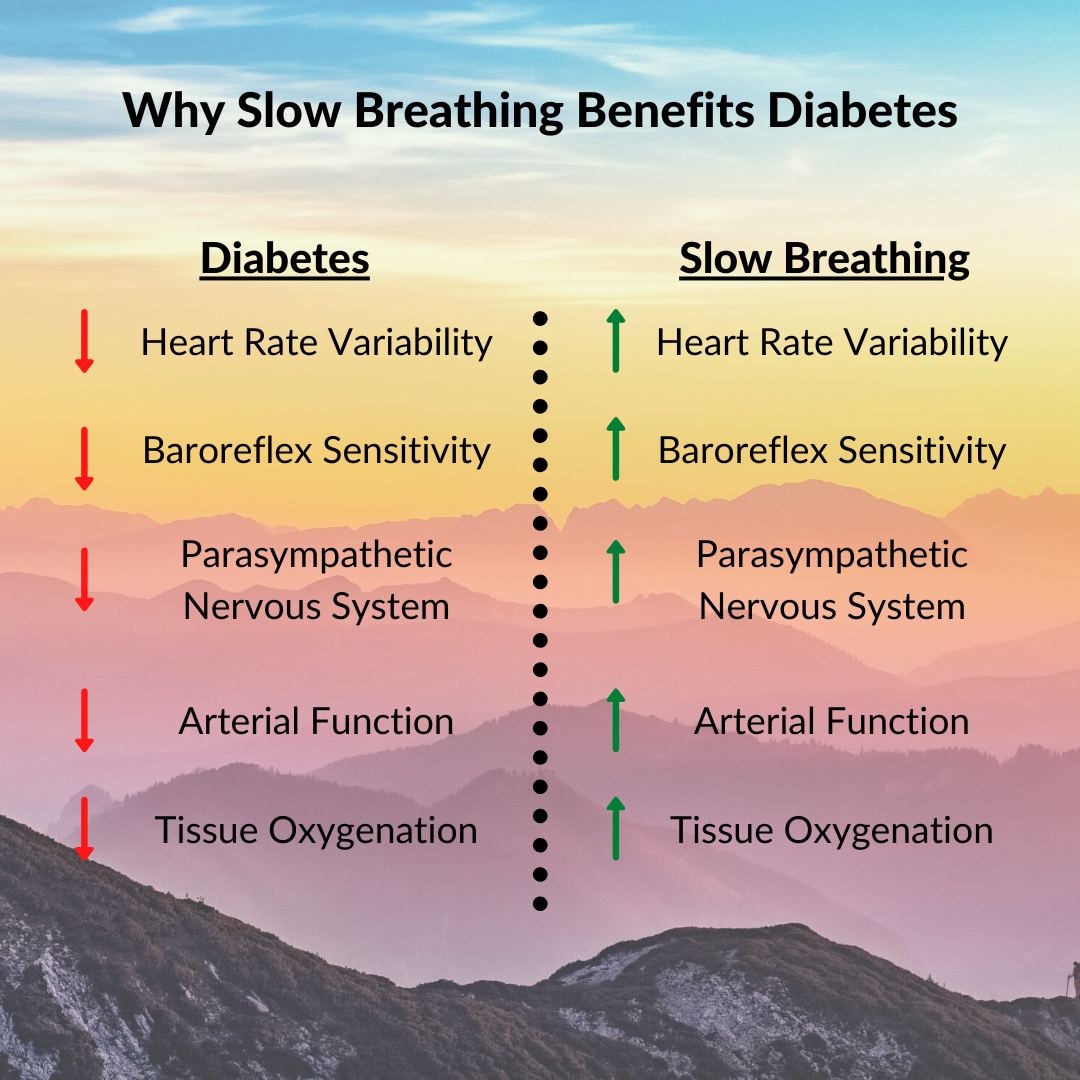As a person with type-1 diabetes, long-term complications are like the boogeyman. I hide under the covers, turn off the lights, and they can’t get me. I am healthy, after all. Right?
But the truth is, diabetic complications are more common than I would like to admit. There are, however, two pieces of good news.
There is Always Good News
First, a popular study showed that for every 1% reduction in HbA1c, there was a significant reduction in the risk of many diabetic complications.
For example, in type-2 diabetics, a 1% drop in HbA1c was associated with a 14% drop in heart attacks. Because we know that slow breathing can help reduce HbA1c, this is more motivation to be consistent with our breathing practice (and exercising, eating healthy, and sleeping more).
Second, the study I’m sharing this week found that some diabetic complications are reversible by slow deep breathing:
Deep breathing improves blunted baroreflex sensitivity even after 30 years of type 1 diabetes
(Click Here to Read Full Summary)
Journal: Diabetologia, Volume 54, Article number: 1862 (2011)
Baroreflex sensitivity (BRS) measures your heart’s ability to adjust your blood pressure in response to changing conditions. It’s also an early indicator of autonomic dysfunction. People with diabetes typically have reduced BRS, even before other complications show up.
This study found that slow breathing at six breaths/min restored BRS to normal levels, even in long-duration type-1 diabetics (>30 years). These results indicate that reduced BRS in diabetics is partially functional and hence partially reversible.
How did slow breathing do this? The authors showed that it increased heart rate variability and parasympathetic tone, leading to improved cardiovascular and autonomic functioning.
More Benefits of Slow Breathing for Diabetics
While getting this post ready, I was considering all of the research showing the benefits of slow breathing for diabetes. This inspired me to create this little graphic, which I think sums it up succinctly.
The earlier we address the adverse effects of diabetes, the better our chances are of avoiding complications.
In good breath,
Nick
P.S. That is trust.
P.P.S. My stats for this week:
Average BOLT Score: 30 sec (Min: 26 sec, Max: 36 sec)
Average CO2 Tolerance: 64 sec (Min: 54 sec, Max: 82 sec)
Average Blood Sugar: 102 mg/dL (Min: 47 mg/dL, Max: 230 mg/dL)


